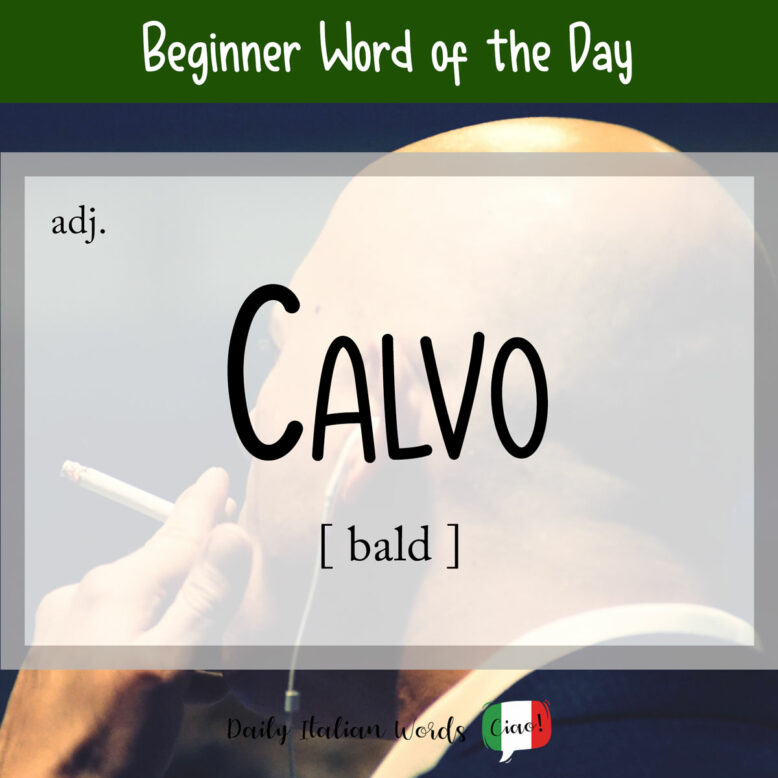The word for bald or bald-headed in Italian is calvo, which comes from the Latin calvus of the same meaning. Its feminine form is calva and their respective plural forms are calvi and calve.
Learn with our video

Essere calvo means to be bald whereas diventare calvo means to go bald.
Sarò calvo fra qualche anno. Ho già una stempiatura, non vedi?
I’ll be bald in a few years. I already have a receding hairline, don’t you see?
Calvo can refer specifically to the head (i.e. testa calva = bald head) or to the person who is bald (i.e. un uomo calvo = a bald man).
Like many adjectives, calvo can also function as a noun that means bald-headed person or baldy. The opposite would be capellone, the word for a person with an abundance of hair.
Da giovane mio padre era un capellone, ma ora è completamente calvo.
My father had lots of hair when he was young, but now he’s completely bald.

Some other terms related to baldness include:
- calvizie = baldness
- pelata = bald spot
- rapa = shaved head, bald head (lit: turnip)
- perdere i capelli = to be balding, to lose one’s hair
- stempiatura = receding hairline
- essere stempiato = to have a receding hairline
A commonly used synonym for calvo is pelato. The latter has a broader meaning however, referring not only to bald heads but to any hairless part of the body or living thing.
Ho la testa tutta pelata adesso. Vabbè, almeno risparmierò i soldi del parrucchiere.
My head is completely bald now. Oh well, at least I won’t have to spend money at the hairdresser’s.
This article is also available in video format on our YouTube channel. The audio version can be found on Podbean, Google Podcast, Apple Podcast and Spotify.
Heather Broster is a graduate with honours in linguistics from the University of Western Ontario. She is an aspiring polyglot, proficient in English and Italian, as well as Japanese, Welsh, and French to varying degrees of fluency. Originally from Toronto, Heather has resided in various countries, notably Italy for a period of six years. Her primary focus lies in the fields of language acquisition, education, and bilingual instruction.


